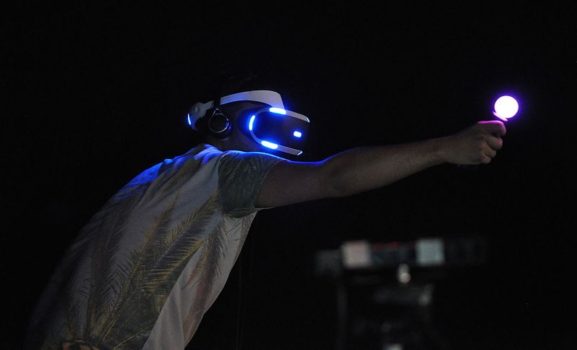
Virtual reality was big this year at Cannes Lions. Its presence makes itself known as demonstrations of the technology abound at stations all around the festival. Through these demonstrations, we’re experiencing firsthand what VR can do now. But through the discussions, we’re also learning what it will do in the future.
During Lions Innovation, we heard from some of the pioneers in the field about where VR is heading, and what they’ve learned about making great immersive experiences.
The rules of this medium are still being written, but here’s what we know so far.
Utilize the space
“Virtual reality is not filmmaking,†said Jessica Brillhart, the principal filmmaker for VR at Google.

During Adventures in Virtual Reality, a discussion hosted by Google, Brillhart presented what she’s learned since joining Google’s VR team in 2015.
A VR film can have multiple points of interest, she said.
Because of that, you need to reward the rebels who will ignore the main focal point of your shot in favor of what’s happening around it. As a VR creator, you need to add detail to the surrounding shots that will enhance your story.
Watch the video of the discussion below:
https://www.youtube.com/watch?v=r7_0G7S2Zek
Foster human connection
VR has a profound ability to evoke emotional responses. Through VR, you’re able to give your viewer the unique experience of seeing the world from someone else’s perspective. This means that, when creating a VR experience, you need to be crystal clear on the point-of-view.
Brillhart gave the example of filming an orchestra. By simply adjusting the height of the camera, you can put the viewer in the shoes of either the conductor or the orchestra players.
Create magical experiences
Speaking of perspective, because VR gives us the ability to see things from other’s point of view, it’s a very human medium with the power to foster empathy. One famous example of this is the Guardian’s 6×9 project, which gives viewers the experience of being in solitary confinement.

On the other side of the coin, VR can also be used to create worlds that can never be experienced in real life. This was a point made by the director of Sony’s PlayStation MagicLab, Dr. Richard Marks.
During the talk Games, VR and Beyond, Marks emphasized the magical qualities of VR that allow us to experience the world beyond our own human limitations.
“Teleportation is something you can’t do in real life,†he said, speaking about the feature from the video game Portal. “And that’s my favorite thing to do.”
Watch an interview with Richard Marks at Cannes below.
Think beyond entertainment and news
It’s not hard to see the profound impact of VR in gaming, entertainment, and news. But it has applications beyond those fields as well.

During Adventures in Virtual Reality, Clay Bavor, Google’s Vice President of Virtual Reality, discussed the act of preserving memories.
“We place an enormous value on memories,” he said. He gave the example that, when you ask people what they would save if their house was burning down, after saving their family and pets, the next thing they list is often photographs.
Through photographs and videos, we can capture intimate moments, like time spent with our family and friends.
Now with VR, these moments can be preserved in both time and space, allowing us to return to those memories and experience them like never before.
Article reprinted with permission from Hill+Knowlton Strategies.
- Magic, human connections make for great VR experiences - June 28, 2016
